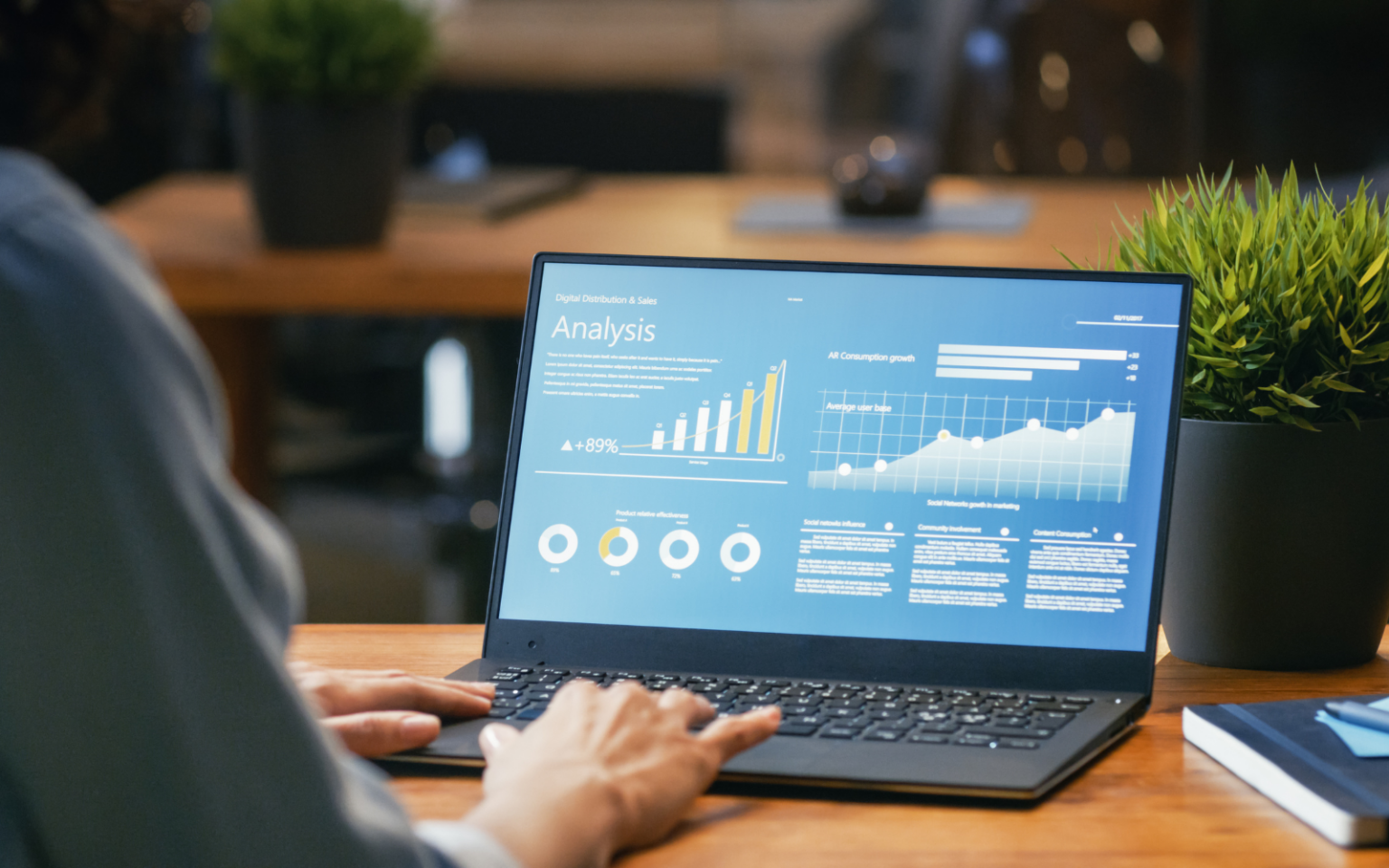How Are Data Analytics Jobs Evolving In The Face Of Rising Automation And AI?

Over the past few years, professionals with data analytics jobs have been increasingly integrating AI and automation into their workflows. AI and automation have become essential tools in the profession, with automation speeding up repetitive tasks such as data cleaning, and AI tools being used by data analysts to help interpret datasets. As part of this evolution within data analyst jobs, analysts are using both AI and automation tools to create efficiencies.
In fact, a staggering 97% of data analysts reported using AI and automation on a day-to-day basis. Despite this large-scale integration into the sector, data analysts on the whole are unconcerned with fears that many professions hold over these technologies replacing them in their jobs.
However, that’s not to say that data analytics isn’t changing. As AI and automation slowly take over the handling of time-consuming and repetitive tasks, many data analysts have reported that their job responsibilities have shifted and evolved.
What do data analytics jobs focus on?
Data analysts sit at the intersection of tech and business strategy. They help to provide tailored business solutions through their interpretation and analysis of an organisation’s datasets. In essence, they clean, collect and make sense of a company’s data in order to help answer key operational questions, such as:
- Who are the business’ target audiences?
- Is X campaign reaching the right people?
- What are the customer pain points?
This is an essential process for many businesses who want to understand how their efforts are being received by their clients, customers, or even employees, and if adjustments need to be made to reach their goals.
Nowadays, companies hold and collect so much data but often do not know how to effectively use these datasets to their advantage. This is where data analysts step in to clean and analyse the data and then present it using visualisation tools to key stakeholders who can use the insights to inform business decisions and strategy.
With a predicted CAGR of 28.7% from 2025 to 2030, the global data analytics market is set to skyrocket over the next 5 years as businesses invest more in understanding their data. This makes data analysts not only an operational necessity for many businesses, but a key reason for companies to take advantage of AI and automation and leverage the technology into their data strategies in order to create further efficiencies and drive innovation within their operations.
How are AI and automation transforming data analytics?
As with all areas of technology, tech leaders are exploring ways that data analytics can be enhanced through AI and automation. Using AI and automation within data analytics can help to reduce the time data analysts spend on collecting and analysing data, allowing them to focus more on value-adding tasks and working directly with stakeholders.
Far from AI and automation replacing humans in data analytics jobs, 97% of data analysts are already utilising these technological advancements within their workflows in some capacity. This includes:
- Processing and cleaning large datasets quicker than humans can do manually
- Offering forecasts based on data trends
- Combining multiple sources of data and integrating them with ease
- Identifying anomalies in data to bring to the attention of the data analyst
On average, data analysts spend a significant portion of their time collecting and preparing data, approximately 10-11 hours per week. Using AI and automation can help keep this part of the data analytics process as efficient as possible.
How are data analytics jobs evolving?
With rising automation and AI usage, data analysts are looking for ways to enhance their value adding services. In fact, around 86% of data analysts have said that AI and automation have changed their job responsibilities to some extent in this past year. Many have adapted their skills and responsibilities in these following areas:
Further aligning with business strategy and decision-making
As automation frees up the time of data analysts by completing repetitive tasks, data analysts can offer value through getting more involved with business strategy. Additionally, using AI to help interpret data allows analysts to work on complex campaigns and offer pivotal insights that can effectively inform anything from cost efficiency solutions to working on financial strategies and revenue generation.
Specialising in a particular industry
Whilst AI tools can provide analysts with projections and information based on the data fed into them, data analysts who have a deep understanding of the sector they are based in can help give better context and solutions to these data insights and drive more effective decision-making for complex problems.
Understanding flaws and biases within AI tools
It is well understood that AI has flaws and limitations. Biases within how such tools are programmed and trained means that human analysts need to be conscious and aware of the outcomes and projections the tools are making and how to mitigate such issues. Furthermore, many data analyst professionals have reported that AI tools struggle with low quality datasets and still need a human data analyst to be working on these datasets before they can offer any real assistance.
Upskilling in AI and machine learning
With AI and automation tools being widely integrated into data analytics jobs, analysts will need to have a deep understanding of machine learning, automation and how AI can optimise their processes in order to succeed in the future.
Could AI and automation take over data analytics jobs altogether?
The simple answer is no. With its current limitations, AI and automation are not able to match the skills, knowledge and experience of data analysts.
Whilst AI and automation tools can be used to speed up areas of an analyst’s workflow, such as through collecting and cleaning data and identifying anomalies, they cannot fully replace the value-adding services of a data analyst.
Nevertheless, the inclusion of AI and automation in data analytics has changed the game and will continue to shape the role and responsibilities of data analysts within businesses. Data analysts, who have always been seen as tech professionals bogged down in numbers, are moving to more strategic and consultancy roles within business operations and can support large scale transformations and complex campaigns alongside leadership teams. The ways in which data analytics will continue to change in the next few years as the AI and automation sectors continues to develop will be fascinating and key to businesses as they handle an ever-changing landscape.
If you are looking for a data analyst who can help you optimise your operations, VIQU IT is a data analytics specialist recruitment agency, that can assist you in securing the data talent you need. Get in touch with our team here today!
Similar articles you might like...

The Impact Of Employer National Insurance Increases On The IT Sector: A Pragmatic Analysis
The Employer National Insurance increases have had far-reaching effects on the sector, with many businesses facing budget constraints as a direct result.

Why Are Data Scientists In Demand?
We have seen a significant increase in demand for data scientists, with many businesses keen to utilise data-driven business-making within their business strategy plans to fully leverage the benefits of unlimited cloud storage.
Latest jobs
Business Systems Support Specialist
 Widnes, United Kingdom
Widnes, United Kingdom
 £32k - 38k per year
£32k - 38k per year
Location: Widnes (Hybrid – Mostly Remote Working) Salary: Up to £38,000 per annumVIQU has partnered with a public sector organisation to find a proactive and skilled Business Systems Support Specialist to join their team in...
Data Engineering Manager
 Leeds, United Kingdom
Leeds, United Kingdom
 £65k - 70k per year
£65k - 70k per year
Role: Data Engineering ManagerSalary: £65,000- £70,000 per annumLocation: Leeds (One day on site).VIQU have partnered with a leading supply chain organisation who are looking to expand their data teams. The Data Engineering Manager will manage...
Lead Data Engineer
 Leeds, United Kingdom
Leeds, United Kingdom
 £65k - 75k per year
£65k - 75k per year
Lead Data Engineer Location: Leeds (Mostly Remote – 1 Day On-Site) Salary: Up to £75,000 per annumAre you an experienced Senior Data Engineer ready to step into a leadership role? We’re looking for a Lead Data...
Business Process Manager
 Birmingham, United Kingdom
Birmingham, United Kingdom
 £50k - 55k per year
£50k - 55k per year
Business Process Manager Location: Birmingham (2 days a week) Salary: Up to £55,000 per annum VIQU have partnered with a growing organisation with a focus on sustainability who are expanding...
Technical Product Owner - Databricks-Focused
 Leeds, United Kingdom
Leeds, United Kingdom
 £66k - 75k per year
£66k - 75k per year
Technical Product Manager – Data PlatformHybrid | Leeds | Permanent | £66,000 - £75,000 VIQU has partnered with a leading logistics company and a looking for a Data Engineering Product owner to join their Data Engineering...



